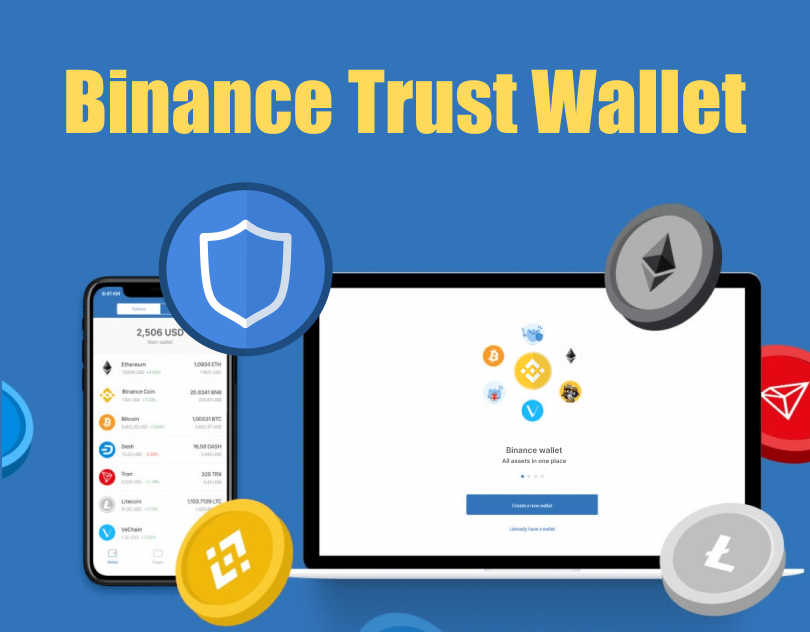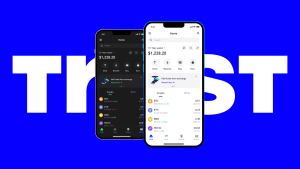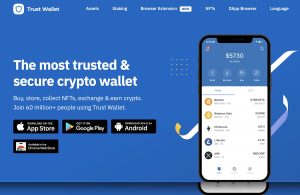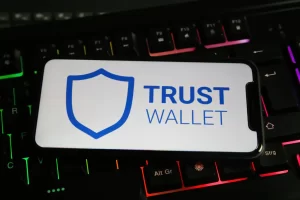Is Trust Wallet a US company?
Trust Wallet is not a US company. It was founded by Viktor Radchenko, a Ukrainian software developer. The company was later acquired by Binance, one of the world’s largest cryptocurrency exchanges, which is registered in multiple jurisdictions but not based solely in the United States.

Who Founded Trust Wallet and Its Early Development
The Background of Trust Wallet’s Creator Viktor Radchenko
-
Early Career and Experience: Viktor Radchenko, originally from Ukraine, was a skilled software engineer with a strong background in mobile application development. Before creating Trust Wallet, he had experience working on various tech projects that focused on transportation and finance.
-
Interest in Blockchain Technology: Viktor became interested in blockchain and cryptocurrencies around 2016. Frustrated with the lack of secure and user-friendly mobile wallets at the time, he decided to build a solution that allowed users to manage their crypto assets easily and securely.
-
Launch of Trust Wallet: In 2017, Viktor launched Trust Wallet with the goal of providing a non-custodial, decentralized, and user-controlled mobile wallet. The app was designed to store Ethereum and ERC-20 tokens initially, with later expansions into multi-chain support.
How Trust Wallet Gained Early Popularity in the Crypto Community
-
Focus on User Control and Security: Trust Wallet quickly gained attention because it offered users full control over their private keys and emphasized strong security practices. This approach appealed to crypto enthusiasts who valued decentralization and self-custody.
-
Open-Source Commitment: Trust Wallet’s early commitment to being an open-source project built trust within the crypto community. Developers could review the code themselves, ensuring transparency and reinforcing the app’s credibility in a highly skeptical market.
-
Expanding Asset Support: As Trust Wallet added support for a wider range of tokens and blockchain networks beyond Ethereum, it attracted a growing number of users who wanted a single wallet capable of handling multiple cryptocurrencies efficiently and securely.
How Trust Wallet Became Part of the Binance Ecosystem
Details About Binance’s Acquisition of Trust Wallet
-
Acquisition Announcement in 2018: In July 2018, Binance, one of the world’s largest cryptocurrency exchanges, officially announced its acquisition of Trust Wallet. The move was part of Binance’s strategy to expand its ecosystem and offer secure wallet solutions to its growing user base.
-
Maintaining Trust Wallet’s Independence: Despite the acquisition, Binance allowed Trust Wallet to continue operating independently. Viktor Radchenko and his team retained control over development decisions, ensuring that the wallet stayed true to its decentralized, user-first principles.
-
Strengthening Trust Wallet’s Resources: After joining Binance, Trust Wallet gained access to more resources, including financial support, broader technical expertise, and deeper integration opportunities. This helped accelerate the app’s development and security enhancements.
Impact of the Acquisition on Trust Wallet’s Growth and Features
-
Expansion to Multi-Coin Support: Post-acquisition, Trust Wallet expanded its support from Ethereum and ERC-20 tokens to include major cryptocurrencies like Bitcoin, Litecoin, and XRP, as well as many more blockchain networks, making it a true multi-asset wallet.
-
Integration with Binance’s Ecosystem: Trust Wallet became the official mobile wallet of Binance DEX and Binance Chain. It also enhanced its connection to Binance Smart Chain (now BNB Smart Chain), giving users seamless access to decentralized trading and DeFi opportunities.
-
Rapid Growth in User Base: With Binance’s backing, Trust Wallet saw massive growth in its global user base. The app’s reputation for security, combined with Binance’s brand strength, helped it become one of the most downloaded and trusted crypto wallets worldwide.

Where Trust Wallet Operates Globally
Trust Wallet’s Availability in Different Countries
-
Global Access Without Geographic Restrictions: Trust Wallet is available for download in most countries around the world. It can be accessed via the Google Play Store, Apple App Store, or directly through the official Trust Wallet website for Android APK downloads.
-
Localized Language Support: To cater to a global audience, Trust Wallet supports multiple languages including English, Spanish, Chinese, Russian, and more. This localization effort helps make the app accessible and user-friendly for people in different regions.
-
Serving Emerging and Developed Markets: Trust Wallet is popular in both emerging and developed crypto markets, including countries in Asia, Europe, North America, Africa, and Latin America. Its easy access and decentralized nature make it attractive to users regardless of location.
How Trust Wallet Complies with Global Crypto Regulations
-
Non-Custodial Structure: Trust Wallet’s non-custodial design means it does not hold users’ funds or private keys, helping it avoid many of the regulatory requirements that apply to custodial financial institutions and centralized exchanges.
-
No Mandatory KYC Requirements: Unlike centralized platforms, Trust Wallet does not require users to complete Know Your Customer (KYC) processes, as users retain full control of their data and assets, aligning with privacy-focused regulations in many countries.
-
Compliance Through Ecosystem Partners: When users interact with services like crypto purchases through third-party providers integrated within Trust Wallet, those providers handle regulatory compliance requirements such as KYC and anti-money laundering (AML) checks based on local laws.

Is Trust Wallet Registered in the United States
Legal Status of Trust Wallet in the US Market
-
Not a US-Registered Company: Trust Wallet itself is not registered as an American company. It was founded independently and later became part of the Binance ecosystem, which operates internationally without a specific US base.
-
Trademark and Brand Presence: Although not a US company, Trust Wallet maintains trademark protections and operates within the US market. This allows it to be legally recognized while avoiding direct regulatory classification as a financial institution.
-
Service Availability Under US Compliance: Trust Wallet structures its platform to avoid offering direct custodial or financial services, helping it stay compliant with general US laws without requiring full financial registration.
How Trust Wallet Serves American Users
-
Accessible for US Users: Trust Wallet is fully available for download and use in the United States through platforms like the App Store and Google Play, enabling American users to manage their crypto assets securely.
-
Non-Custodial Privacy Benefits: Trust Wallet appeals to American users who prefer non-custodial wallets, giving them full ownership of their private keys without the need to provide personal identification or undergo KYC verification.
-
Responsibility on Users for Compliance: While Trust Wallet provides the tools for secure crypto management, it leaves legal and tax compliance, including reporting of crypto holdings and gains, in the hands of the individual American users.

Why Trust Wallet Maintains a Decentralized Approach
Importance of Decentralization for Trust Wallet’s Mission
-
User Freedom and Control: Decentralization ensures that users maintain complete control over their crypto assets. Trust Wallet’s mission focuses on giving users the tools they need to manage their funds without relying on centralized authorities or third parties.
-
Enhanced Security and Privacy: A decentralized approach minimizes risks of large-scale hacks or data breaches. Since Trust Wallet does not store user data or funds on centralized servers, it reduces potential attack vectors and preserves user privacy.
-
Alignment with Blockchain Principles: Trust Wallet was built on the core principles of blockchain technology—transparency, security, and individual empowerment. By remaining decentralized, Trust Wallet stays true to the original vision behind cryptocurrency adoption.
How Trust Wallet Empowers Users to Control Their Funds
-
Private Key Ownership: In Trust Wallet, users generate and store their own private keys on their devices. This ensures that only the wallet owner has access to the assets, and no one else, including Trust Wallet itself, can interfere or freeze funds.
-
No Custodial Risk: Unlike centralized exchanges that can face shutdowns, freezes, or hacks, Trust Wallet users are immune to custodial risks. Assets remain safely under the user’s control at all times, regardless of external platform issues.
-
Seamless Access to Decentralized Services: Trust Wallet integrates a wide range of decentralized applications (dApps), DeFi platforms, and decentralized exchanges (DEXs), enabling users to trade, lend, stake, and interact with blockchain ecosystems without giving up custody of their funds.





